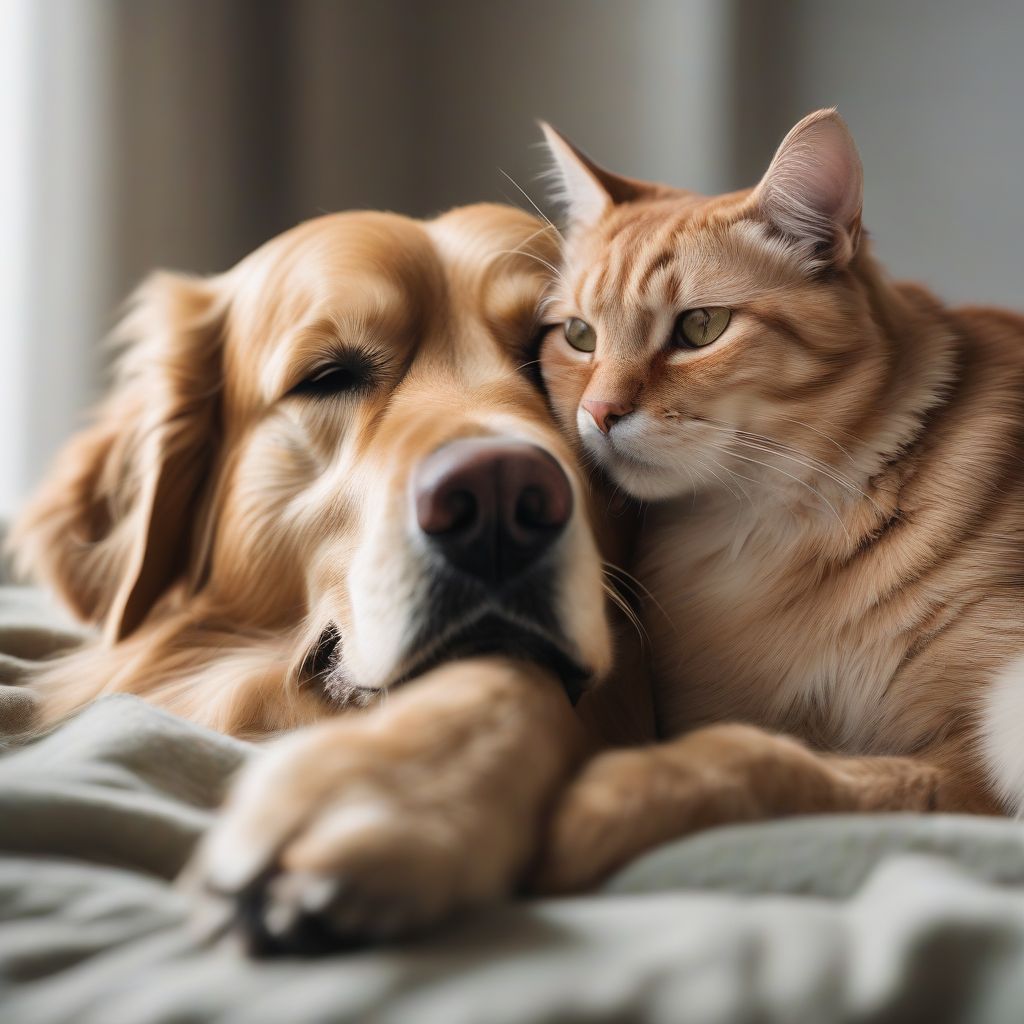As our beloved pets age, they require extra care and attention. Just like humans, senior pets may experience age-related health issues and need some adjustments to their lifestyle to maintain their comfort and well-being.
This comprehensive guide delves deep into the world of senior pet care, offering practical tips and insights to ensure your furry friend enjoys their golden years to the fullest.
Understanding the Needs of Your Senior Pet
“Senior” is a relative term in the pet world, and its definition varies depending on your pet’s breed and size. Generally, dogs are considered senior around 7-8 years old, while cats typically enter their senior years at 10-12.
As your pet enters this stage, you might notice some subtle changes:
- Decreased activity levels: Don’t be surprised if your once energetic companion prefers naps over playtime. This is a natural part of aging.
- Changes in appetite and weight: Metabolism slows down with age, potentially leading to weight gain. Some senior pets, however, might experience a decreased appetite.
- Cognitive decline: You might observe some forgetfulness, confusion, or changes in sleep-wake cycles.
- Joint stiffness and arthritis: Just like us, pets can develop arthritis as they age, causing stiffness and discomfort.
Adapting Your Home for Senior Pets
Making a few simple adjustments can greatly enhance your senior pet’s comfort and safety:
- Comfortable bedding: Invest in a soft, orthopedic bed that provides ample support for aging joints.
- Easy access: Consider ramps or steps to help your pet reach their favorite spots if they have difficulty jumping.
- Non-slip surfaces: Prevent accidental slips and falls by placing non-slip mats on slippery floors.
- Night lights: These can be helpful for senior pets with vision impairment, making it easier for them to navigate at night.
Senior Pet Nutrition: Fueling Their Golden Years
Just as their activity levels change, so do their nutritional needs. Here’s how to adjust your senior pet’s diet:
- High-quality protein: Look for foods with easily digestible protein sources to support muscle mass maintenance.
- Joint support: Consider incorporating foods rich in omega-3 fatty acids or glucosamine supplements to support joint health.
- Weight management: If your pet is gaining weight, consult your veterinarian about switching to a senior formula designed for weight management.
- Hydration is key: Ensure your senior pet has access to fresh water at all times.
Senior Pet Health: Regular Checkups and Early Detection
Regular veterinary checkups are crucial for senior pets. Aim for at least twice-yearly visits to detect any potential issues early on. During these visits, your vet might recommend:
- Blood work: This helps assess organ function and detect any underlying health conditions.
- Urine analysis: This can reveal urinary tract infections, kidney issues, and other conditions.
- Dental care: Senior pets are prone to dental disease, so regular cleanings and checkups are vital.
Enrichment and Mental Stimulation for Senior Pets
Keeping your senior pet mentally stimulated is just as important as physical care. Engage their minds with:
- Puzzle toys: These provide mental challenges and help keep your pet sharp.
- Short training sessions: Even short bursts of training can be beneficial for cognitive function.
- Gentle play: Adapt playtime to their energy levels, opting for calmer activities like fetch in short intervals.
Recognizing Signs of Pain and Discomfort
Senior pets might not always show obvious signs of pain. Learn to recognize subtle cues:
- Changes in mobility: Difficulty getting up, limping, or reluctance to move.
- Altered grooming habits: Decreased grooming or excessive licking at a specific area.
- Changes in personality: Increased irritability, aggression, or withdrawal.
If you notice any of these signs, consult your veterinarian immediately.
End-of-Life Care: Providing Comfort and Support
While it’s a difficult topic to address, it’s essential to consider end-of-life care for your beloved companion. Discuss palliative care options with your veterinarian, including pain management and quality-of-life assessments.
Remember, you are not alone in this journey. Numerous resources and support groups are available to help you navigate the challenges of caring for a senior pet.
Creating a Loving and Supportive Environment
Ultimately, the most important aspect of senior pet care is providing love, comfort, and a supportive environment. By understanding their changing needs and making necessary adjustments, you can ensure your furry friend enjoys their golden years to the fullest.
 Senior Dog and Cat Cuddling
Senior Dog and Cat Cuddling
Remember, age is just a number, and the love and companionship of a senior pet are truly priceless.
For further information on providing a balanced diet for your senior pet, check out our article on Balanced Diet for Pets. You may also find our article on Pet Bedding Reviews helpful in selecting the most comfortable bedding for your aging companion.
[amazon bestseller=”orthopedic dog beds for large dogs”]
